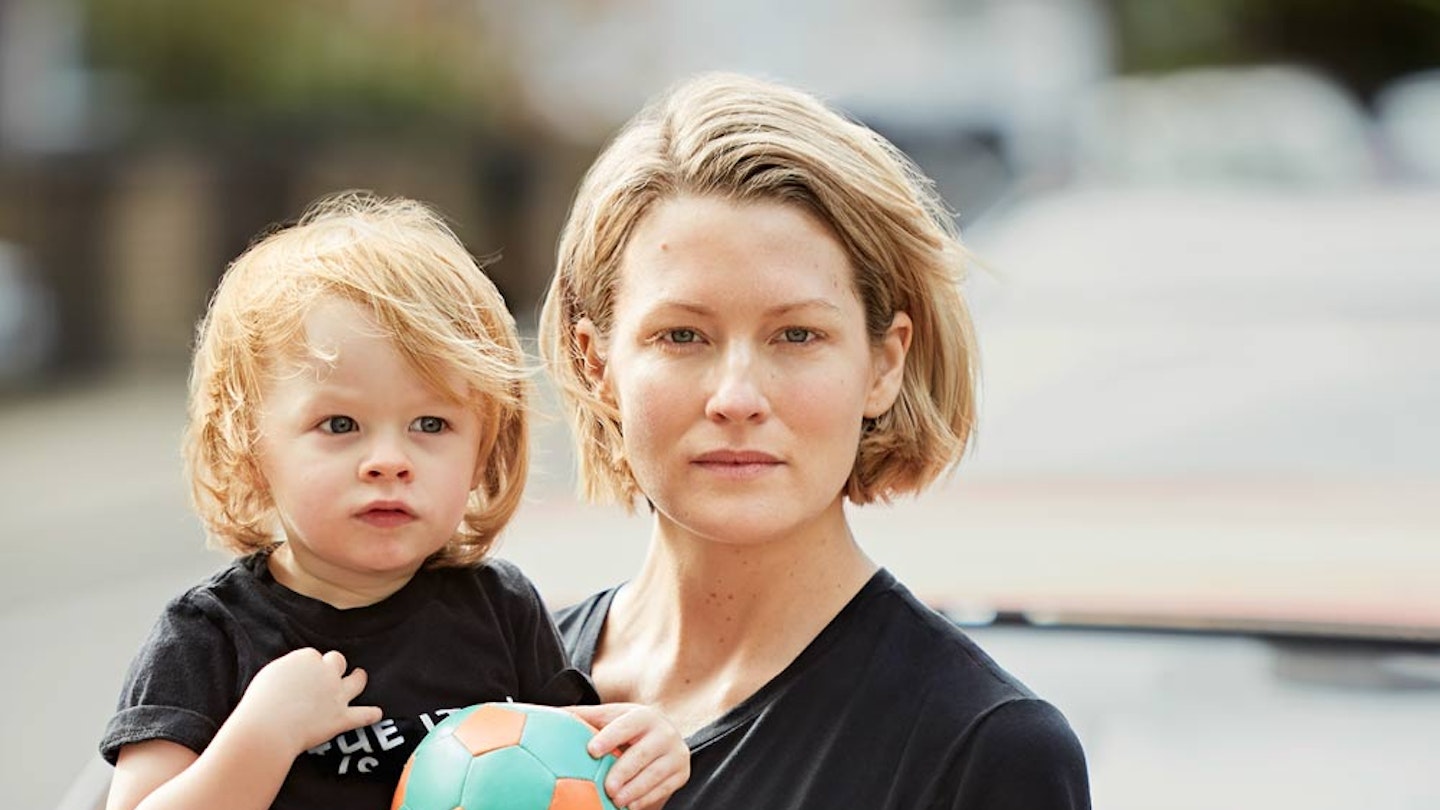I found out I was pregnant 11 days after ‘the sex’. In those 11 days I managed to t in two work trips to Geneva and three benders, during one of which I saw the sun rise. We’d just started trying and didn’t actually think it would happen. I was 32, bored of hangovers and having a baby just seemed... so novel!
I guess people don’t expect to hear the news ‘I’m pregnant’ in a bar at 1am. is might explain why a few responded with ‘On purpose?’ It was less an announcement and more an explanation as to why the soda in my hand contained no vodka. Being the first in my friendship group to fall pregnant, it felt rebellious and teenage, even though at 32 I was only three years off being considered a geriatric mother by the NHS. I was so very naïve about what was to come. I believed having a child would only mean adding to my life. I had no idea I was saying goodbye to life as I knew it.
Nine months is a long time to be stripped of bodily autonomy. FOMO became a very real emotion, raw and plaguing. Work and friends had been my life. Now my pregnant belly was. And here’s a difficult thing to acknowledge – I found everyone else carrying on their lives offensive. The hormones, stress of performing at work and the lack of any social outlet sent me crazy. I was so excited to be a mother, but I was still coming to terms with all that you can’t be once you are a mum: you know, things like selfish, impulsive, workaholic and drunk.
As my boyfriend and I swapped pubs for soft-play centres and working late for the childminder dash, the gulf between us, our friends and our colleagues widened. We were on different time zones; our friends going to bed as we rose. Our references weren’t the same. Stories had to be laboured to make it across the divide. I returned to work paranoid that I didn’t know what was relevant any more and too tired to be witty.
Playing down having a kid is exhausting. I was constantly conflicted as to how ‘mum’ I looked and sounded. I didn’t know how to identify. I censored myself in conversation, trying not to reveal too much about the monotony of motherhood. In an office of 50, there was only one other mum. I’d been made partner in an advertising agency at the age of 30. I was the youngest to hold that position and the first woman. It’s hard not to sound smug when I say I quit a six-figure-salary job. But that wasn’t how I felt; I felt ashamed and defeated.
I’d never expected to be the woman who quit her job after having a baby. When you’ve spent 12 years fighting your way to the top of a male-dominated industry, you feel you owe it other women to stay. A friend, Beth Bentley, a brand strategist who also quit her job after returning from maternity leave explained, ‘I was the only female to have done my job throughout our global network. Quitting felt like I was letting my former self down, the women in my team, the younger women in my industry and, not least, my baby daughter. I questioned was this a good message to send her? But in the end you have to live in the moment. And I needed to make changes.’
I’m ashamed to admit this now, but I’d looked down on mothers who didn’t return to work. It wasn’t that I judged stay-at- home mums, I judged the quitters. I hated that they fuelled the perception that mums made crap workers. It took me becoming a mother myself to realise this was just another form of victim-blaming.
The night before I quit, I’d found myself trying to force an empty breast into my son’s mouth. I’d stopped breast-feeding two months before and knew this would confuse my eight-month-old. But I wasn’t doing it for my son; I was doing it for myself, desperate for a connection. I’d been away on a work trip and a er four days in a boardroom I wanted to feel like his mother.
‘I didn’t want it all, but I did want something,’ Anna Whitehouse, aka Mother Pukka, a campaigner for flexible working rights, tells me. She quit her job at L’Oréal when her daughter was 18 months old. ‘Every day I’d run the maternity gauntlet – a dash across town to get to my daughter’s nursery on time. I never did that journey without a furrowed brow, dripping with sweat and mouthing apologies; sorry I need to get on this tube, sorry to the nursery nurse for being the last parent there.’
My work probably would have trialled flexible working, but I didn’t even ask. In the grip of an identity crisis, I needed some time out to assess what being a working mother meant to me. I’m now freelance and work as hard as I did then, just at rather odd hours of the day. It took quitting that job to realise that my friends and colleagues weren’t mum-prejudiced – I was.
READ MORE: Women Are Facing A 'Postcode Lottery' For IVF Treatment
